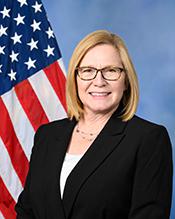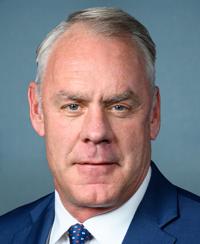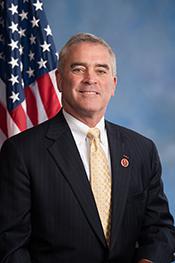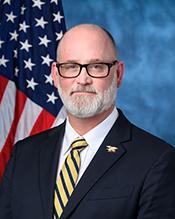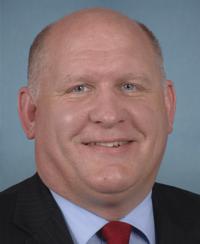0
0
0
Providing for congressional disapproval under chapter 8 of title 5, United States Code, of the rule submitted by the Centers for Medicare & Medicaid Services relating to "Medicare and Medicaid Programs: Minimum Staffing Standards for Long-Term Care Facilities and Medicaid Institutional Payment Transparency Reporting".
10/9/2024, 5:35 PM
Summary of Bill HJRES 139
Bill 118 hjres 139, also known as the "Providing for congressional disapproval under chapter 8 of title 5, United States Code, of the rule submitted by the Centers for Medicare & Medicaid Services relating to 'Medicare and Medicaid Programs: Minimum Staffing Standards for Long-Term Care Facilities and Medicaid Institutional Payment Transparency Reporting'", is a piece of legislation that aims to challenge a rule proposed by the Centers for Medicare & Medicaid Services (CMS).
The rule in question pertains to minimum staffing standards for long-term care facilities and Medicaid institutional payment transparency reporting. The CMS rule seeks to establish requirements for long-term care facilities to maintain a minimum level of staffing to ensure the safety and well-being of residents. Additionally, the rule aims to increase transparency in Medicaid institutional payment reporting to provide more accountability and oversight of funding allocation.
However, Bill 118 hjres 139 seeks to disapprove of this rule under chapter 8 of title 5 of the United States Code. This means that Congress is challenging the validity and implementation of the CMS rule, potentially leading to its repeal or modification. The bill is currently under review and debate in Congress, with lawmakers considering the potential impact of the CMS rule on long-term care facilities, Medicaid funding, and overall healthcare quality. Supporters of the bill argue that the rule may impose unnecessary burdens on facilities and could lead to unintended consequences. Critics, on the other hand, believe that the rule is necessary to improve the quality of care and ensure transparency in Medicaid funding. As the legislative process unfolds, it will be important to monitor the discussions and decisions surrounding Bill 118 hjres 139 to understand its implications for long-term care facilities, Medicaid programs, and healthcare regulation in the United States.
The rule in question pertains to minimum staffing standards for long-term care facilities and Medicaid institutional payment transparency reporting. The CMS rule seeks to establish requirements for long-term care facilities to maintain a minimum level of staffing to ensure the safety and well-being of residents. Additionally, the rule aims to increase transparency in Medicaid institutional payment reporting to provide more accountability and oversight of funding allocation.
However, Bill 118 hjres 139 seeks to disapprove of this rule under chapter 8 of title 5 of the United States Code. This means that Congress is challenging the validity and implementation of the CMS rule, potentially leading to its repeal or modification. The bill is currently under review and debate in Congress, with lawmakers considering the potential impact of the CMS rule on long-term care facilities, Medicaid funding, and overall healthcare quality. Supporters of the bill argue that the rule may impose unnecessary burdens on facilities and could lead to unintended consequences. Critics, on the other hand, believe that the rule is necessary to improve the quality of care and ensure transparency in Medicaid funding. As the legislative process unfolds, it will be important to monitor the discussions and decisions surrounding Bill 118 hjres 139 to understand its implications for long-term care facilities, Medicaid programs, and healthcare regulation in the United States.
Read the Full Bill
Current Status of Bill HJRES 139
Bill HJRES 139 is currently in the status of Bill Introduced since May 10, 2024. Bill HJRES 139 was introduced during Congress 118 and was introduced to the House on May 10, 2024. Bill HJRES 139's most recent activity was Ordered to be Reported by the Yeas and Nays: 21 - 18. as of September 18, 2024
Bipartisan Support of Bill HJRES 139
Total Number of Sponsors
1Democrat Sponsors
0Republican Sponsors
1Unaffiliated Sponsors
0Total Number of Cosponsors
76Democrat Cosponsors
0Republican Cosponsors
76Unaffiliated Cosponsors
0Policy Area and Potential Impact of Bill HJRES 139
Primary Policy Focus
HealthPotential Impact Areas
- Administrative law and regulatory procedures
- Congressional oversight
- Department of Health and Human Services
- Health care costs and insurance
- Long-term, rehabilitative, and terminal care
- Medicaid
- Medicare
Alternate Title(s) of Bill HJRES 139
Providing for congressional disapproval under chapter 8 of title 5, United States Code, of the rule submitted by the Centers for Medicare & Medicaid Services relating to "Medicare and Medicaid Programs: Minimum Staffing Standards for Long-Term Care Facilities and Medicaid Institutional Payment Transparency Reporting".
Providing for congressional disapproval under chapter 8 of title 5, United States Code, of the rule submitted by the Centers for Medicare & Medicaid Services relating to "Medicare and Medicaid Programs: Minimum Staffing Standards for Long-Term Care Facilities and Medicaid Institutional Payment Transparency Reporting".
Comments

Raymond McDaniel
431
1 year ago
I think this bill is a good thing cuz it helps cut red tape and lets facilities make their own decisions. It might mean better care for me and my loved ones in the long run.
Sponsors and Cosponsors of HJRES 139
Latest Bills
Providing amounts for the expenses of the Committee on Ethics in the One Hundred Nineteenth Congress.
Bill HRES 131December 12, 2025
Providing for congressional disapproval under chapter 8 of title 5, United States Code, of the rule submitted by the Bureau of Land Management relating to "Central Yukon Record of Decision and Approved Resource Management Plan".
Bill HJRES 106December 12, 2025
Expressing the sense of the House of Representatives in condemning the Government of the People's Republic of China for its harassment and efforts to intimidate American citizens and other individuals on United States soil with the goal of suppressing speech and narratives the People's Republic of China finds unwelcome.
Bill HRES 130December 12, 2025
Providing for congressional disapproval under chapter 8 of title 5, United States Code, of the rule submitted by the Bureau of Land Management relating to "North Dakota Field Office Record of Decision and Approved Resource Management Plan".
Bill HJRES 105December 12, 2025
Providing for congressional disapproval under chapter 8 of title 5, United States Code, of the rule submitted by the Bureau of Land Management relating to "Miles City Field Office Record of Decision and Approved Resource Management Plan Amendment".
Bill HJRES 104December 12, 2025
Providing amounts for the expenses of the Select Committee on the Strategic Competition Between the United States and the Chinese Communist Party in the One Hundred Nineteenth Congress.
Bill HRES 104December 12, 2025
Critical Access for Veterans Care Act
Bill S 1868December 12, 2025
OATH Act of 2025
Bill S 1665December 12, 2025
A bill to extend the authority for modifications to the Second Division Memorial in the District of Columbia.
Bill S 1353December 12, 2025
Saving Our Veterans Lives Act of 2025
Bill S 926December 12, 2025
A joint resolution providing for congressional disapproval under chapter 8 of title 5, United States Code, of the rule submitted by the Centers for Medicare & Medicaid Services relating to "Medicare and Medicaid Programs; Minimum Staffing Standards for Long-Term Care Facilities and Medicaid Institutional Payment Transparency Reporting".
Bill SJRES 91June 21, 2024
